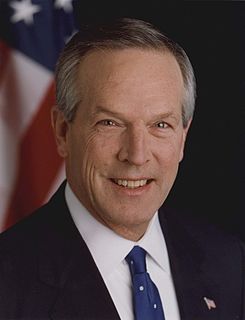A Quote by Mark Skousen
Lawmakers who interfere with commerce and the normal creation of jobs in an economy run the risk of doing harm rather than good. Unintended consequences from regulating or legislating to achieve a goal can occur and cause havoc in the markets or an economy.
Related Quotes
Entrepreneurship rests on a theory of economy and society. The theory sees change as normal and indeed as healthy. And it sees the major task in society – and especially in the economy – as doing something different rather than doing better what is already being done. This is basically what Say, two hundred years ago, meant when he coined the term entrepreneur.
Markets are a social construction, they're made from institutions. We in a democratic society create markets, we constitute markets, we bring them into existence, and we shouldn't turn markets over to a narrow group of people who regulate them and run them in their interests, rather they should be run democratically for the common good.
Doing the same things you did when the economy was good is not good enough. You will have to put more coals on the fire in a poor economy to get the same heat you received in a good economy. You must give more energy, more thought, more service, and get into positive thinking material more frequently. Become more selective about who you spend time with. Love a little more, hate a little less. Think about it. You can progressively move on an upward path toward any goal. The choice is yours as to who or what controls you!
Today it's fashionable to talk about the New Economy, or the Information Economy, or the Knowledge Economy. But when I think about the imperatives of this market, I view today's economy as the Value Economy. Adding value has become more than just a sound business principle; it is both the common denominator and the competitive edge.
There's whole television stations, magazines, organizations devoted to analyzing every up-and-down twist and turn, IPO, everything that happens in the formal economy. And yet the informal economy, these black and gray markets, actually make up for almost half of the global economy. And there's so little information that we have about them.





































